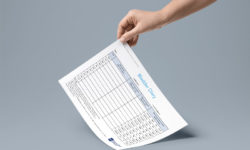Bladder Retraining and Keeping a Bladder Diary
Originally published on: April 6th, 2017. Last modified on June 29th, 2021
Bladder retraining is a simple and effective method used to try and overcome bladder problems including, urgency, frequency and incontinence. Click the link below to download our bladder diary.
Bladder Diary
[BBC:005] Bladder Diary
To help identify your bladder habits and patterns start a bladder diary, recording the number of times you go to the toilet, how long you can wait until you go to the toilet, what you drink and so on.
How Does Bladder Retraining Work?
Bladder retraining helps you to begin to hold more urine for longer periods of time. It is possible to train your bladder to do this by gradually increasing the time between each visit to the toilet.
This method sounds simple, however bladder retraining takes time and determination and will not work overnight. To have a chance of successful bladder retraining you must try and ignore the feeling that you need to go to the toilet for as long as possible.
If you can learn to ignore the feeling that you need to go straight away your bladder will begin to relax and will become less irritable. It is possible for you to be in control of your bladder and not the other way round.
How Do You Begin To Retrain The Bladder?
You must try and resist the messages that your bladder sends to you telling you that you need to go to the toilet. If you continue to respond to those messages and go to the toilet each time you feel the urge to go, your feelings of urgency/frequency will continue and possibly get worse.
Resisting messages from your bladder will not be easy. When you listen to the messages and relieve yourself, you find immediate relief – but of course it is only temporary because you will start feeling uncomfortable again after only a very short time. This cycle of discomfort, even panic, followed by brief relief is very hard to break. You need to be strong and focused. Try and empty your bladder after you experience feelings of urgency. Gradually increase the amount of time you wait before you empty your bladder again. You will need to be patient and not be put off if you have accidents and failures, especially at first. You will feel rather silly, living your voiding schedule by a stopwatch, but very often this method works and can make your life a great deal easier.
Bladder Diary
To help identify your bladder habits and patterns start a bladder diary, recording the amount of times you go to the toilet, how long you can wait until you go to the toilet, what you drink and so on.
From your diary you will be able to identify how long your bladder can hold on until it needs to be emptied. From here, you can set realistic goals that can help your bladder become stronger.
When you have set your goals, try not to rush to the toilet as soon as the time is up. Try if possible to resist that further urge.
At night, empty your bladder before you go to bed and try and resist any urges to further empty your bladder before you go to sleep.
The following are some things that may help make your bladder retraining successful:
- Plan your retraining schedule clearly with realistic and achievable goals.
- Focus on success – not on setbacks.
- Be patient; bladder retraining will not be a success overnight. You will need to work hard at it for some weeks.
- Be aware of any fears or worries associated with your bladder problem. In some cases these fears or worries will need to be tackled before long-lasting success is possible.
If you are frightened of having an accident while training, consider wearing light protection. Perhaps an absorbent pad in your pants, or special underwear designed to mop up small leakages (Continence products can be found by visiting our Products Section). These will remove the worry and the hassle of having to change frequently during training.
If you find you are getting nowhere after 2 to 3 weeks of work, then consider consulting your doctor or a specialist continence nurse or physiotherapist. It may be that some other medical cause is preventing your success like a persistent infection or some damage to your bladder mechanism.

